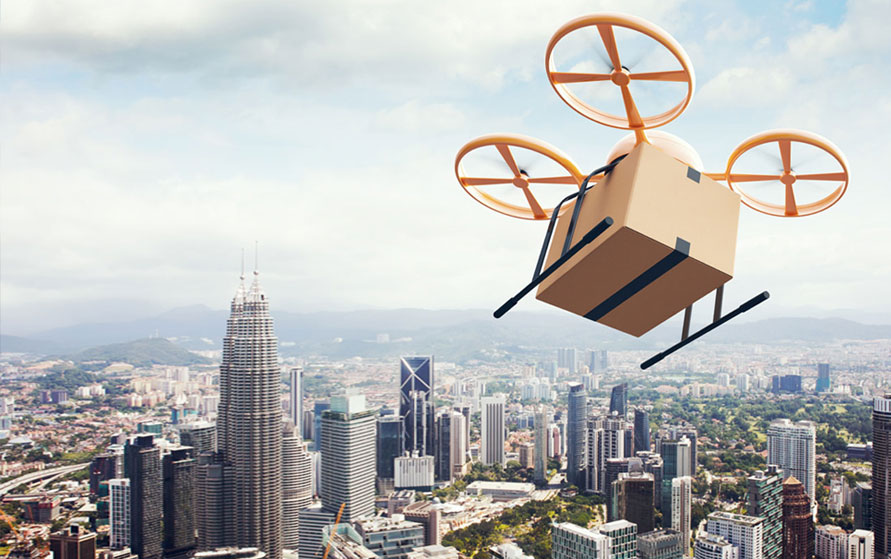Are drone deliveries the way forward?

Innovations in technology are dramatically changing how the world does business, certainly within logistics and transportation. Such major developments will impact the way logistics companies manage their own internal transportation management systems in the future.
Over the past few years, we have seen a significant rise in unmanned aerial vehicles (UAV) and drone related exhibitions worldwide, with a notable increase in the development and use of UAV or drones being manufactured. Amazon have already announced their Prime Air Service will utilise drones to deliver products within half an hour. Google and Apple are also working on long term projects to launch their own self-driving cars and many companies are investing heavily in the research and development of machine learning and automation within the logistics industry.
These investments raise many questions, does the introduction of delivery drones and self-driving vehicles present an alternative transportation option? Will drones enhance internal transportation systems?. Will automated delivery vans be conveying goods for exhibitors across the country in the future or will this innovation create concerns and disruptions when tested in the real world?.
Exhibition operations have come a long way and there is much to be said for transport technology advancement. Indeed, today there are cloud and web based systems, bluetooth technology and tracking applications, all enabling us to monitor the international movement of exhibition goods throughout the entire shipping process.
It has been speculated that transport drones could impact ocean, air, and road freight, by making the inspection and review process simpler as well as updating and processing information during the loading and unloading process. Embracing these new technologies could improve a company’s reliability, reputation, profitability, as well as driving forward overall business efficiency.
However, with improvements naturally come concerns. Like any machine, drones can malfunction and cause injury or damage to property during transit. Drones or goods could be stolen on route resulting in undelivered shipments and delayed deliveries. Fears over data hacking and privacy become a threat.
Another concern is whether drones will be used to work alongside existing jobs in the supply chain or replace them outright. Whilst drones may avoid human error it remains to be seen how this will impact employment within our industry.
So for now, drone deliveries are limited to certain location drops, subject to weight restrictions and limited flying time during daylight hours or certain weather conditions. Driverless cars and automated delivery drones are currently still being tested with an expensive outlay and high maintenance costs.
With the emergence of drone exhibitions and companies developing such technology it is clear these innovations are on the horizon. Although these new developments could present a new range of opportunities for logistic companies, it is unlikely we will see them being adopted until the technology is more widely available, affordable and extensively tested in the working environment.

